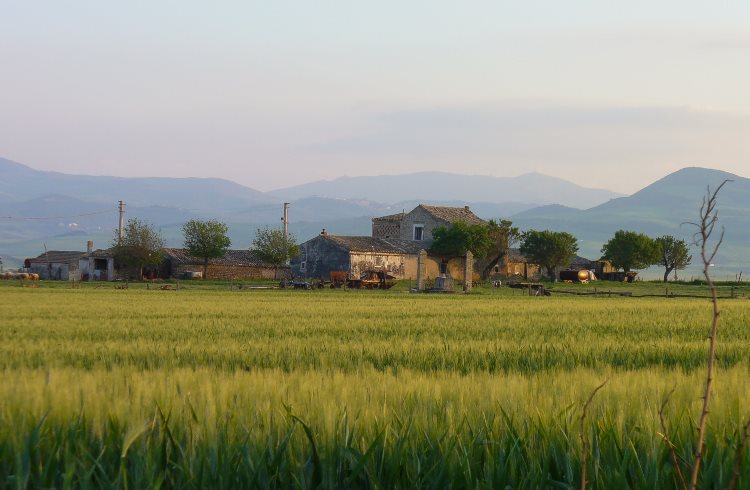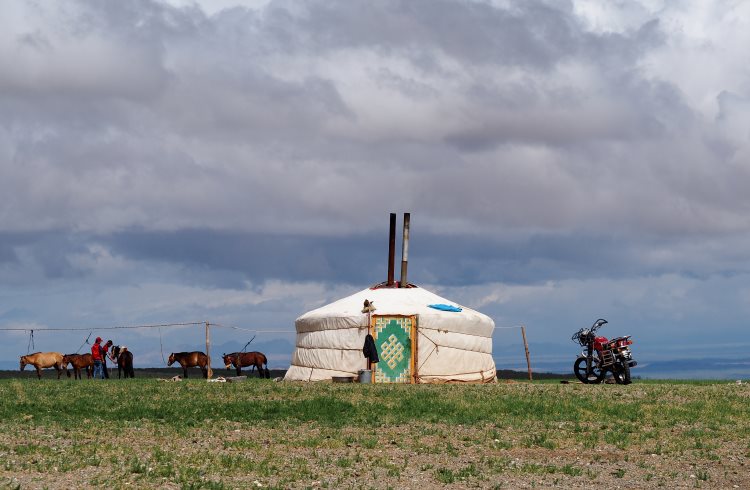The Benefits of Agritourism, for the Farmer and the Traveler
Staying on a working farm combines the best of slow food and slow travel, and brings much-needed economic support to local communities. Here’s why you should consider a farm stay on your next trip.
 Photo © Olivia Pozzan
Photo © Olivia Pozzan
- What is agritourism?
- The history of agritourism
- The benefits of agritourism
- Guest guidelines for a farm stay
“This farm is with my family for many years,” Giuseppe told me as we wandered through the vineyard. Clusters of fat red grapes hung from the vines, almost ready for harvesting. He picked one and handed it to me. It was warm, sweet, and delicious. I knew wine made from grapes grown in his sun-drenched corner of Tuscany was amazing. We had shared a bottle the previous evening over a plate of homemade pasta prepared by his wife.
“If you like stay on my farm, you eat food I grow, wine I make. Is good for you.” He handed me another grape, echoing a sentiment I had heard many times while traveling around Italy staying in rustic agriturismi. “Is good for me.”
What is agritourism?
An agriturismo (plural agriturismi) is a working farm where tourists can spend one or more nights. It’s a form of agricultural tourism, commonly called agritourism, and is a growing trend around the world.
Agritourism is defined as tourism where guests stay in accommodation on a working farm and may also participate in farming operations.
This trend reflects a shift towards slow travel and immersive experiences. Rather than ticking off a list of destinations and sights, travelers are seeking “back to nature” escapes and memorable interactions with local cultures.
In its broader sense, agritourism is any activity or interaction that fosters a greater appreciation and awareness between a traveler, the land visited and the people who live on it. It can encompass a long lunch on a farm where you eat locally grown fresh produce or a day spent exploring a vineyard and sampling its wines. It could involve feeding lambs at an animal nursery or picking your own fruit from an orchard. But for a deeper and more meaningful experience, where you can explore a local way of life and a farmer’s relationship to the land, a stay in an agriturismo or farm is the way to go.

The history of agritourism
Agritourism sounds like a new concept, but it’s been around for a long time. In the USA, dude ranches originated in the 1880s, attracting city dwellers and foreigners to experience the “wild west” – riding horses, herding cattle and helping with farm chores. In Israel, the kibbutz culture of collective farming, where visitors could stay and work, began in the early 20th century.
In Italy, agriturismi have been operating since the 1960s when farmers, struggling after the second world war, were encouraged to open their homes to tourists. The extra income allowed farmers to remain on their land (which had often been in the family for generations), preserve traditional agriculture, and save historic farm buildings from ruin and collapse.
Farm stays are popular in many countries around the world, whether the traveler helps out on the farm or simply wants to relax in a tranquil country setting. The beauty of farm stays is that they are generally in idyllic locations away from cities and crowds. Giuseppe’s vineyard was a little Tuscan paradise, but I’ve also stayed in log cabins, dairy farms, Mongolian gers, Asian fruit farms, and Outback Australian cattle stations. The scope is as endless as the scenery.

The benefits of agritourism
Agritourism has advantages for everyone involved.
The additional revenue stream from offering guests overnight accommodation can be crucial to the livelihood of small farms, diversifying business and providing a stable income for the farmer. There is often a flow-on effect on the local community. As more “slow travelers” visit a region and stay longer, they spend more of their money in the immediate area – eating at nearby restaurants, and seeking fresh, organic produce and crafts from local artisans. This economic influx helps the community preserve its local food and traditions. It allows farmers to hold onto their homes and protects farmland from developers.
In return, farm stays offer guests new insights and authentic experiences, the opportunity to develop a connection with the land and to learn about local cultures and lifestyles from their hosts. Staying on a farm is generally far less expensive than staying in a hotel and some farm stays offer the chance to work in exchange for free or discounted accommodation. It’s ethical travel at its eco-best.
Guest guidelines for a farm stay
Whether you’re bunking down in a dude ranch in Arizona or an olive grove in Puglia, remember that you are an integral part of the agritourism experience. Your hosts have opened their doors to share their day-to-day lives and to offer their home-grown hospitality. A good guest shows respect, appreciation, and common sense. Farmers usually rise early and work long days. You won’t be expected to keep the same hours but if you plan to help out with the harvest or the farm animals, dress appropriately, expect to get dirty and have fun.
Related articles
Simple and flexible travel insurance
You can buy at home or while traveling, and claim online from anywhere in the world. With 150+ adventure activities covered and 24/7 emergency assistance.
Get a quote


No Comments